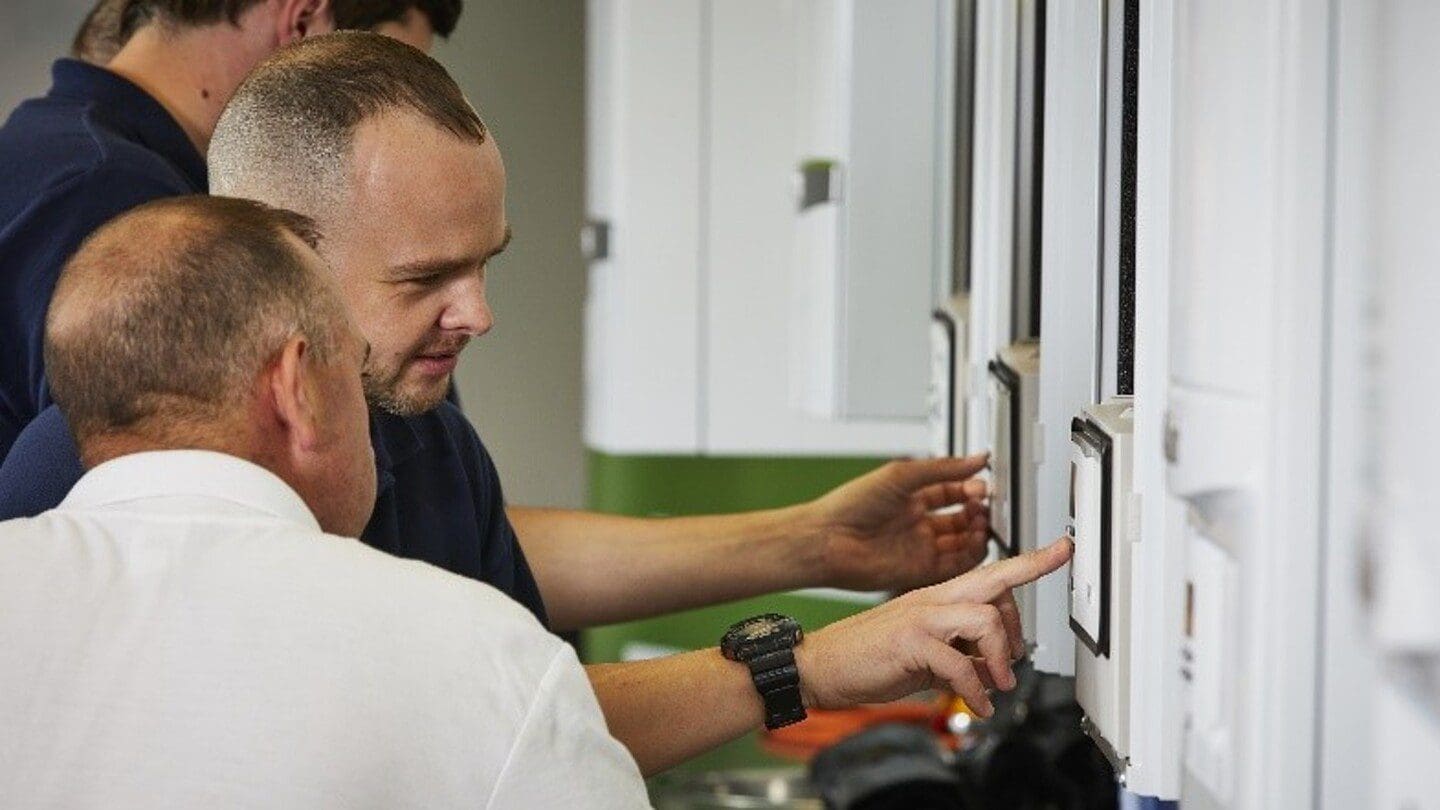Survey indicates strong interest in heat pump training
Survey indicates strong interest in heat pump training

A recent survey found that over half of installers are interested in heat pump training over the next 12 months, with the main driver for those who have already upskilled being to ensure the future for their business.
Of the installers surveyed by Vaillant, 82% do not currently install heat pumps with nearly 80% of respondents believing that not enough homes are suitable for a heat pump, over 70% agreeing there is not enough consumer demand and over 70% saying they are too expensive.
Despite these concerns over future potential, the majority of those questioned are interested in upskilling with over half (56%) answering ‘yes’ and a further third (31%) answering ‘maybe’ when asked if they were interested in undertaking air source heat pump training in the next 12 months.
The survey of 1,136 installers registered on the company’s loyalty programme, was undertaken by Vaillant to get a deeper understanding of the barriers and motivators behind retraining.
For those installers considering heat pump training, the top motivators were futureproofing their business, the financial benefit of a broader heating solution offering and environmental benefits. Those already installing heat pumps (18% of those surveyed) also cited futureproofing as their number one motivator but were more confident of increasing customer demand placing this second.
Vaillant estimates the time required for a heating engineer to upskill to be around 9.5 days but, having assessed the current skillset and qualifications of those surveyed, this commitment was reduced to 6.5 days due to existing, transferable skills. Despite most installers estimating the loss of earnings to be around £450 per day, of those who had initially expressed an interest in training, two thirds remained interested after learning the time they would need to invest.
What’s more, despite the success of online training through the pandemic, the majority of installers looking to upskill, showed a clear preference for in-person or, at least, hybrid training, and indicated a willingness to travel and make time during the week.
Considering both the cost of training and of downtime, it is no surprise that a lack of government support is regarded as the biggest barrier to undertaking heat pump training. More than 70% of those surveyed said government needs to do more, with more than 40% suggesting government should fully cover training costs in order to achieve the 600,000 installations targeted.
Vaillant’s research was conducted prior to the announcement of a £5 million Heat Training Grant fund by the Department of Energy Security and Net Zero, in which installers can apply for up to £500 towards heat pump training. Further details are expected in Spring.
Mark Wilkins, Technologies and Training Director for Vaillant, said: “Whilst it’s encouraging to see that most installers are keen to upskill with additional heat pump training, some are also wary about the demand from consumers being low – and we’ve seen this through the recent BUS inquiry. In our response to this inquiry, we have urged the government to set a clear strategy for consumer education and awareness to help drive demand for heat pumps and therefore the training required for installers.
“The Heat Training Grant is a significant step towards making heat pump training more accessible for the installer community, wherever they are in their career. I’m delighted that Vaillant is also supporting this scheme, and we are working diligently with our training partners and internal teams to enhance our current heat pump training offer to ensure it simplifies the process for installers, providing them with cost-effective and accessible training to gain the relevant qualifications to take a heat pump installation through from the design stage all the way to commissioning.”
The UK Government has given strong policy signals towards heat pumps, with the ambition to install 600,000 per year from 2028. To achieve this, the UK will need around 80,000 – 100,000 installers – a significant increase from latest published figures.
For the heat pump market to increase, the number of installers must too, and government actions to encourage installers of fossil fuel heating to transition to a broader range of solutions will be as important as the legislation around those solutions.
© 2025 Created by Euromedia Associates Ltd